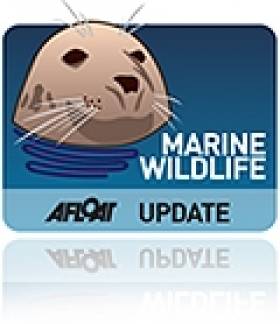Displaying items by tag: Discover Wildlife Weekends
West Cork Weekends Will Bring You Closer To Marine Wildlife
#MarineWildlife - If you've ever wanted to get closer to Ireland's marine wildlife, a new series of weekend excursions in West Cork may be just the ticket.
The Southern Star reports on the 'Discover Wildlife Weekends' being run from Rosscarbery by local company Ireland's Wildlife starting this April, where those taking part will be led by expert guides to explore the coastal region and have the best opportunities to spot the many species of whales and dolphins that visit our shores.
Weather permitting, the weekends will also involve some offshore whale watching in the company of 'whale watch supremo' Colin Barnes and the Irish Whale and Dolphin Group's (IWDG) sightings co-ordinator Pádraig Whooley.
And birdwatching will also be a feature, as West Cork is a hotspot for our feathered friends - from merlins and peregrine falcons to coastal waders and more exotic fowl that skirt our coasts on their spring migrations.
The Southern Star has much more on the story HERE.
Meanwhile, marine sector stakeholders have expressed their concerns over the designation of six new offshore marine areas by the National Parks and Wildlife Service.
As previously reported on Afloat.ie, the six sites at Blackwater Bank in Wexford, the West Connacht coast, Hempton's Turbot Bank in Donegal, the Porcupine Bank Canyon off Kerry, the South-East Rockall Bank, and the stretch from Rockabill to Dalkey Island off Dublin have been proposed for designation as Special Areas of Conservation (SACs) to protect marine habitats and species listed on the 1992 EU Habitats Directive.
But at a recent meeting at the Irish Farm Centre in Dublin, a coalition of fish farmers, fishermen and marine energy stakeholders have hit out at what they characterise as "the appalling handling of inshore designations since the 1990s by the State", which they claim "has resulted in hundreds of job losses and a flight of serious investment" from Ireland's coastal areas.
“Our experience of the Irish Government’s application of the EU Habitats Directive has been a saga of mismanagement, foot dragging and buck-passing which has left over 500 fish farming licences in limbo for over 10 years and a backlog of red tape and bureaucracy which could see producers waiting until 2020 and beyond for simple renewals which are vital to underpin their businesses," said IFA aquaculture executive Richie Flynn.
"These new offshore SACs will have the same effect of preventing any fishing, marine energy or aquaculture being carried out in these areas if left in the hands of the same agencies to manage."
























































